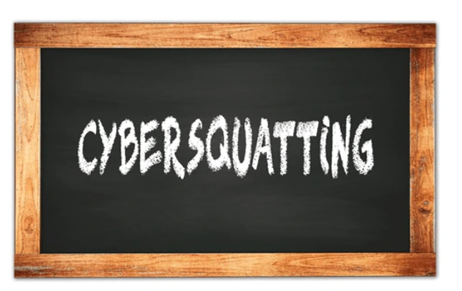Currently, semiconductors act as the foundation for advancements in the technological field such as smartphone…
Section 66A of IT Act,2000
So, let’s firstly we discuss about that what is IT Act 2000, which develops in 9th June, 2000.
The information Technology Act 2000 is created by Parliament in 2000, It is the first law in India which relates the problem & matter of cybercrime and E- commerce.
An act to provide a legal recognition for transaction by carried out by means of electronic data interchange and other means of electronic communication mainly referred to as ‘electronic commerce’. Which involve the issue of alternative to paper-based method of communication and storage of information, to facilitate electronic filling of documents with the government agencies and further and further to amend the Indian Penal Code, [1]The Indian Evidence Act, 1872, The Banker’s Book Evidence Act, 1891, and The Reserve bank of India Act,1934 to modify these laws to make them complaint with new digital technologies.
In easy word if we discuss the whole paragraph is that, The Act was enacted or created to give a legal sanction to electronic commerce and electronic transaction to enable e-governance securely and also to prevent Cybercrime.
Under this law, for any crime involve the or a network located in India, Foreign nationals can also be charged as crime. The prescribe various penalty on cybercrime and fraud done through digital and electronic format, it also gives legal recognition to digital signature.
It is enacted by parliament on fifty-first year of the Republic of India.
In the woke of recent of the Indo-China border clash, the government of India banned various Chinese apps under the Information Technology Act, For example- Tik-Tok and Pubg etc.
IT Acts-2008 Amendments
The IT Act,2000 was amended in 2008, The amendment introduces the controversial section of 66A into the act.
Section 66A
Section 66A give authorities the power to arrest the anyone accused of posting content on social media that could deemed as “Offensive” or “offence”.
In simple word if we discuss about the section 66A Is that section in which if a person sends Offensive messages to anyone through computer resource or a communication device will be punished in law: –
- [2]Any information which he knows to be false, but for the purpose of causing annoying, inconvenience, danger, obstruction, insult, injury, criminal intimidation, enmity or hatred, or ill will persistently by making use of such computer resource or a communication device;
- Any electronic mail message or any electronic mail for the purpose of causing annoyance or inconvenience or to deceive or to mislead the addressee or recipient about the origin of such messages,
Shall be punishable with imprisonment for a term which may extend with three years and fine.
Now we can take an example or a case law to discuss more about the Section 66A: –
The police in Muzaffarnagar, Uttar Pradesh, had arrested and detained the 18-year-old boy Zakir Ali Tyagi in October 2017 under section 66A, for posting some comments on Facebook.
Now we discuss about the Arguments and issue related to section 66A
- Many Experts stated that the terms ‘offensive’, ‘menacing’. ‘annoyance’. etc. were vague and ill defined or not defined at all.
- There was lot of scope for misuse of power to using this provision to intimidate people working in the media.
- Anything could be constructed offensive by anybody.
- This is also curbed as the [3]freedom of speech and expression enshrined as fundamental right in the constitution.
- The section was used most notably to arrest the person who made any uncharitable Remark’s or criticism against the politician’s and society.
The most advent and technology, Section 66A involved with objective of addressing case related to cyber-crime.
The government contented that the section did not violate the fundamental rights and that only words are restricted. It stated that the number of internet users mushroomed in the country, there was a need to regulate the content on the internet just like print and electronic media. The supreme court, however, in 2015 struck down this section of the IT Act saying it was an unconstitutional as it Violated article 19(1) (a) of the constitution.
There was a famous case of Shreya Singhal vs union of India case (2015),
In this case there is a judgment by a two-judge bench of the supreme court of India, on the issue of online speech and intermediary liability in India. The supreme court struck down the section 66A of the Information Technology Act,2000, relating to restriction on online speech, as unconstitutional on grounds of violating the freedom of speech, guaranteed under article 19(1)(a) of the constitution of India. The court further held that the section was not saved by the virtue of being a ‘reasonable restriction’ on the freedom of speech under article 19(2). The supreme court also read down the section 79 and rules under the section. It held that online intermediaries would only be obligated to take down content on receiving an order from a court or government authority. This case is considered as watershed movement for online speech in India.

In the last para we discussed about section 79 so section 79 is intermediary liability.
We can discuss in detailed that section 79(2)(c), of the act states that intermediaries must observe due diligence while charging their duties and also observe some other guidelines as prescribed by the central government.
Online intermediaries: –
An intermediary is a service that facilitate the people to use the internet. Such as internet service provider’s, search engine and social media platform.
There are mainly two types of intermediaries are: –
- Conduits – Technical provider of internet access or transmission services.
- Hosts – Provider of content service.
Information Technology intermediaries’ guidelines (Amendment) Rule were first released in 2011 and in 2018, the government made certain changes to those rules.
In 2018 there was rise in the number of mob lynching’s spurred by fake news & rumors and messages circulated on social media platform like WhatsApp.
In this situation the government proposed stringent changes to section 79 of the IT Act.
What do the rules say: –
- According to 2018 rules, social media intermediaries should publish rules and privacy policy to curb user from engaging in online material which is pedophilic, pornography, hateful, racially, and ethnically objectionable and invasive of privacy, etc.
- The 2018 Rules further provide that whenever an order is issued by the government of agencies seeking information or assistance concerning cybersecurity, then the intermediaries must provide then the same within 72 hours.
- The rule makes it obligatory for online intermediaries to appoint a ‘Nodal person of contract’ for 24*7 coordination with the law enforcement agencies and officers to ensure compliance.
- The changes will also acquire new platforms to break end to end encryption in order to ascertain the origin of the messages.
- Online intermediaries are required to remove or disable access to unlawful content within 24 hours. They should also preserve such records for a minimum period of 180 days for the purpose of investigation.
Author: Anant kumar, in case of any queries please contact/write back to us via email to chhavi@khuranaandkhurana.com or at IIPRD.
[1] The evidence Act, 1872
The Banker’s book Evidence Act,1891,
The Reserve bank of India 1934.
The Information Technology Act 2008
[3] The Indian constitution Act,1950



